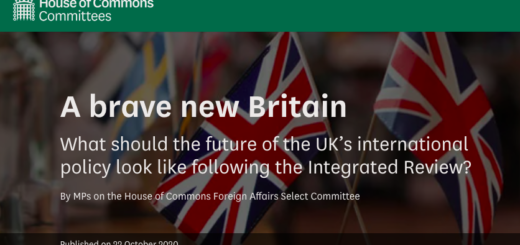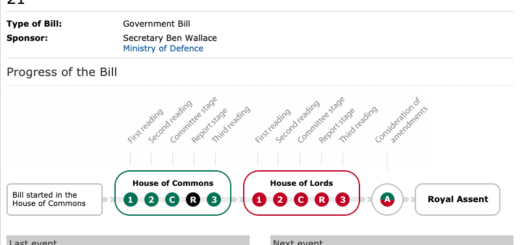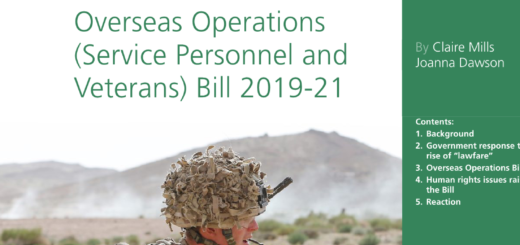Yesterday, the Foreign Affairs Committee published its inquiry report into the Foreign, Commonwealth and Development Office and the Integrated Review, titled: “A brave new Britain? The future of the UK’s international policy.” The report draws on “80 written submissions and more than 100 pages of oral evidence gathered from around the world.” Below is a summary of the APPG’s submission and the Committee’s take-aways from it.
APPG on Drones’ Submission
The APPG on Drones written submission set out that the Integrated Review is aimed at providing clarity and a decisive agenda for protecting UK citizens, exerting UK influence, and shaping global affairs in an increasingly uncertain world. As such, its starting point must be a rigorous assessment of UK interests and ambitions across departments. This will allow the Foreign and Commonwealth Office (FCO) - now Foreign, Commonwealth and Development Office (FCDO) - to articulate a clear and holistic foreign policy baseline and long-term vision for action that focuses on tackling root causes of insecurity and vulnerability.
The Review should assess the significant mismatch between the ambitions, commitments and resourcing of the FCO, Ministry of Defence (MOD), and Department for International Development (DFID) (the former and latter are now one Department, FCDO), most significantly, the overemphasis on countering traditional threats and overreliance on military force when responding to security challenges. The report found that “the UK has recently appeared less ambitious and more absent in its global role.” Citing the APPG’s submission, it pointed to the “under-resourcing” of the “diplomatic service” as part of this problem. Indeed our submission argued that the Review should address how the above mismatch has sidelined and drawn resources away from departments and non-traditional threats, despite the expertise that has been developed, warnings given, and the numerous soft power diplomacy and development tools available. The report specifically referenced the APPG’s emphasis on the importance of soft power to exert global influence, and the need for investment and a coordinated soft power strategy:
“We heard that soft power is an important part of the UK’s global influence, but that it requires a concerted strategy and suitable investment from the Government. The UK’s comparative advantage here is at risk of being eroded by rival powers, and by the financial threat from Covid-19.”
The lack of a clear cross-departmental foreign policy baseline is rendering UK policies inconsistent and ineffective: investigations, court cases and inquiries into UK military operations over the past two decades have revealed fundamental shortcomings in UK policy that suggest that the UK is unable to understand the impact of its own and partnered action, and that it is not achieving its objectives.
The international rules-based order is increasingly under threat, as a growing number of states disregard its regulations, operate in grey zones outside armed conflict, and blur the line between war and peace. It is in the UK’s direct national interest that this system is upheld by its allies and adversaries alike.
For years, the APPG has warned that oversight mechanisms are being outpaced by UK military capabilities and commitments. This was echoed by the Public Administration and Constitutional Affairs Committee (PACAC) in 2019, which found that Parliament’s ability to scrutinise deployment of force needs to be strengthened.
“The Integrated Review is a timely and necessary response to a world characterised by ever-strengthening interconnection and rapid technological change,” the Committee wrote. Herein, it pointed to the APPG submission, which warned against unconditional security and military partnerships and unchecked technological development, in particular in the military sphere. The Integrated Review is an opportunity to correct critical gaps in UK strategy and evaluation. The current global health pandemic is a glaring example of the shortcomings of the traditional national security paradigm. The Integrated Review must support the development of a holistic foreign policy that emphasises tackling root causes of insecurity and vulnerability, and enshrines a human security approach that prioritises the long-term security of individuals over short-term military gains.




